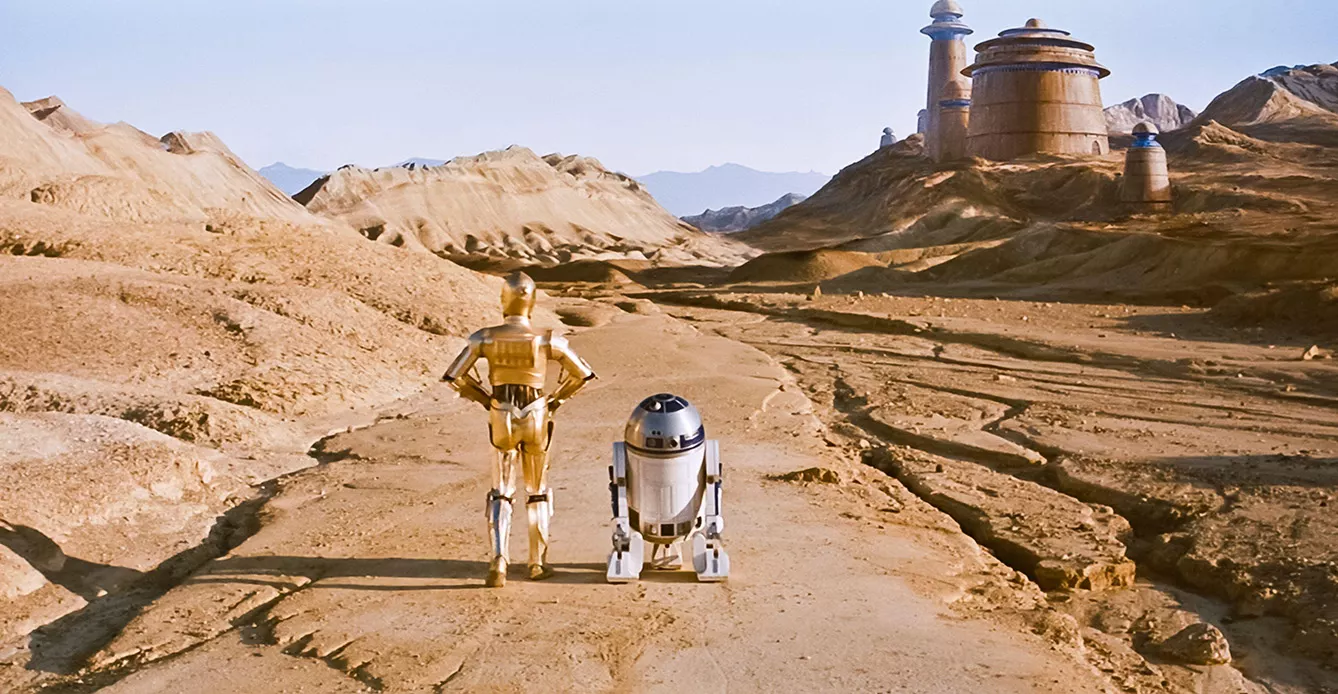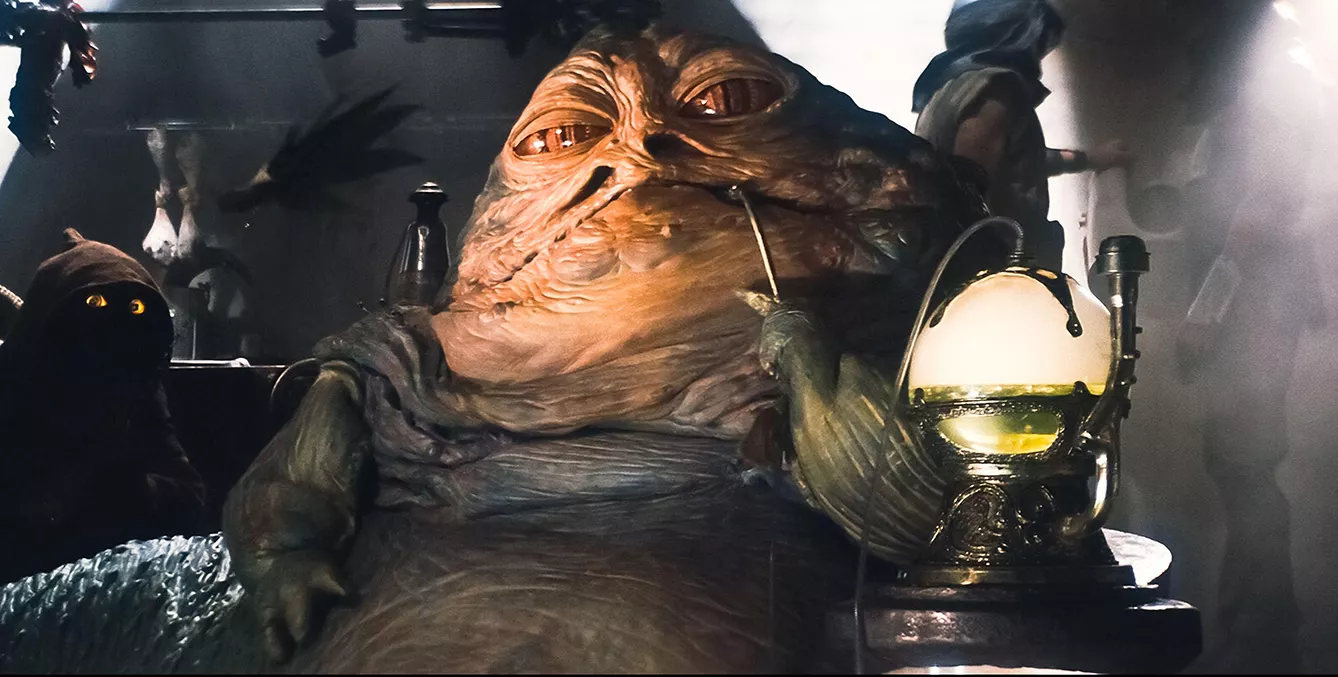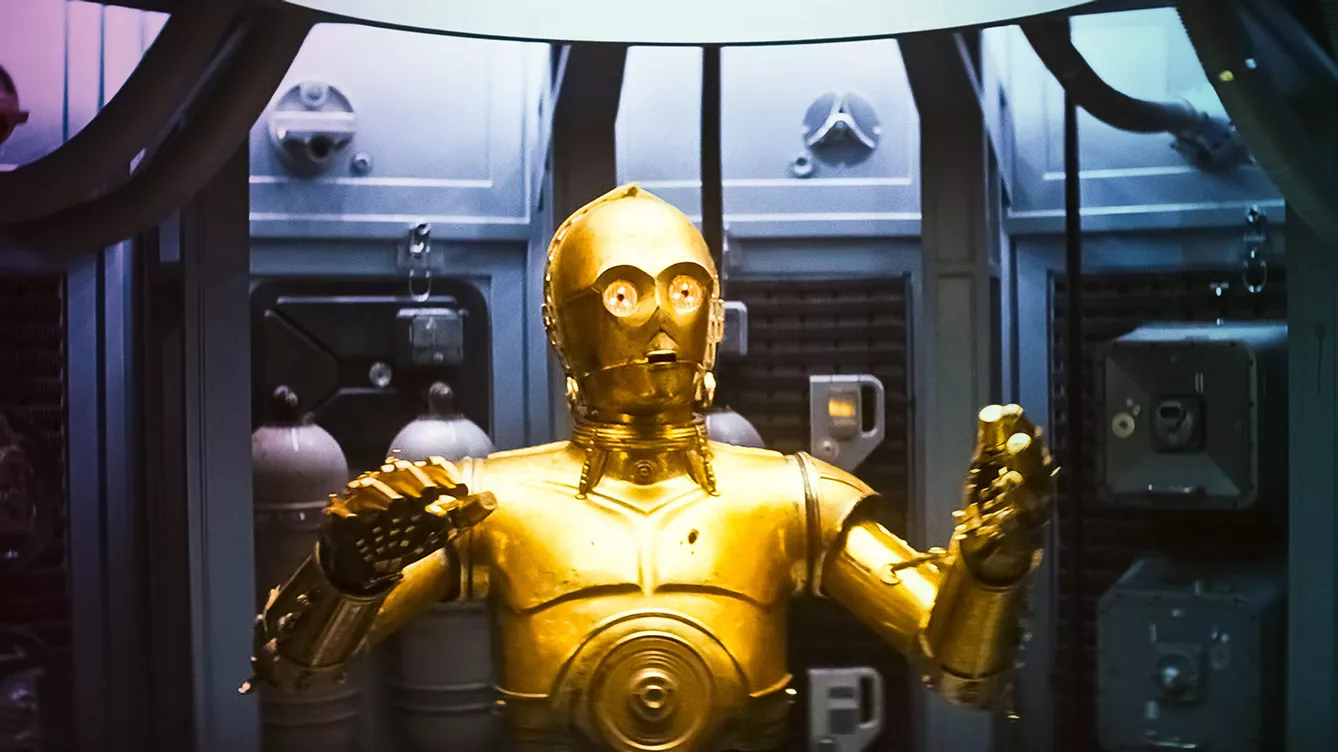C-3PO and his fellow astromech droid R2-D2 wander on the planet Nal Hutta to find the palace of Jabba the Hutt – the “Star Wars” universe villain who kidnaped Chewbacca and keeps frozen Han Solo as a room decor-slash-souvenir of his triumph. Being a protocolar droid, C-3PO is neither a master of disguise nor a skilled ninja when he enters the premises uninvited.
Ay tuta mishka Jabba du Hutt?
His ‘superpower’ of sorts is that he quite literally knows every language of every far away galaxy, so he is able to talk people (and, well, creatures) into doing things. First, he has to ensure that he has found the right address (a quite surprising move, regarding it’s the only building in a literal desert). So naturally, he asks a strange electronic eye, perhaps a visual intercom, in Hutt language.


In the current Disney+ version with English subtitles (you can check for yourself, it’s at minute 06:07 into Return of the Jedi), the question is transcribed as ‘Ay tuta mishka Jabba du Hutt?’. However, if you switch subtitles to Polish, it’s left untranslated since it’s supposedly in Hutt and not supposed to be understood.
Or is it? Well, if some translator decided to subtitle the scene anyway, the Polish version would read ‘Czy tutaj mieszka Jabba the Hutt?’ Compare both, and you’ll see: C-3PO speaks Polish!
C-3PO speaking Polish or the Hutt?
With all the making-of-material for the third Star Wars Saga movie from 1983, perhaps there is an explanation for why Polish was chosen to represent part of the Hutt language. Almost surely, it wasn’t the decision of Anthony Daniels, the British actor who played the role of the golden tin man. At least, we assume so, as who would try to learn this Polish tongue-twisting phrase by choice?
The phrase gets another layer if you consider that the name Jabba is also similar to Polish. If you pronounce it in English, it sounds a lot like the Polish word ‘żaba’ (pronounced like zhaba), which means frog. That’s a close guess, although, as one user on Polishforums.com noted, “I always associated him more with a dung pile.”
The fact remains, therefore, unmentioned, and it took fans to notice it. In one of the web forums (yet not the only one), the reaction was telling: ‘The future of artificial intelligence programming will be done in Polish,’ observed one user. ‘So, then, Hutese is a dialect of Polish,’ observed another.
Perhaps it is. Exotic and with a distinctive shushing sound, Polish seems a good choice to pronounce something unpronounceable, as confirmed by Sasha Baron Cohen’s fictional satirical Kazakhstani character, Borat Sagidyev. His “jagsiemash” (which is basically Polish “Jak się masz,” meaning How are you) and “dziekuji” (Polish: “dziękuję,” or thank you) are Polish-disguised-as-Kazakh spoken in heavily Slavic-esque accent are but one another example.







